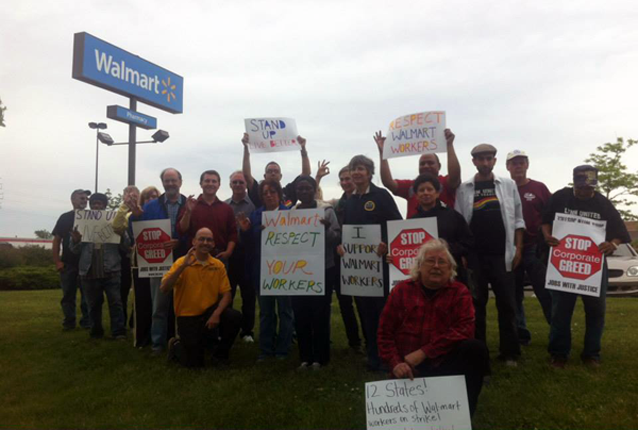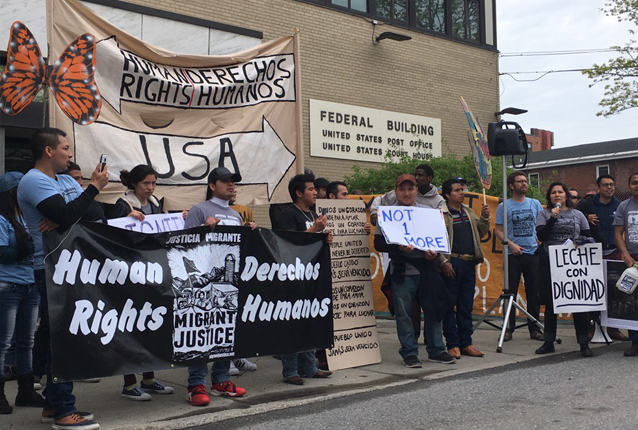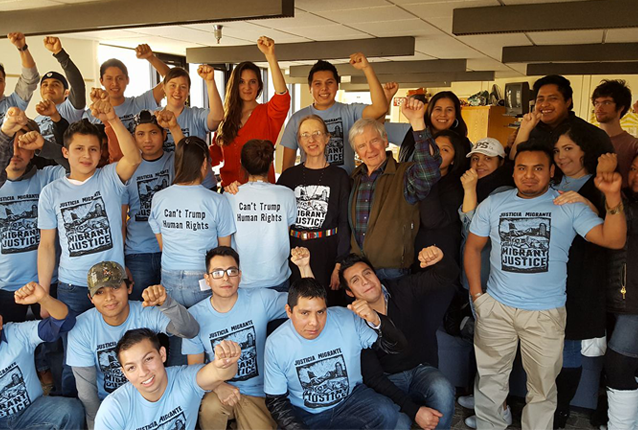Walmart was unable to distance itself from criticism last week at its annual shareholder meeting. From the tragedies in its garment factories in Bangladesh to its own store associates marching on their door, the company was noticeably perturbed by the attention.
Members of OUR Walmart held their longest strike yet to attend the shareholder meeting. Store associates like Janet Sparks, from Louisiana, have found a home in the Making Change at Walmart campaign:
“Before I joined the movement, I knew I had rights, but I didn’t know where to look for them,” she said. “We’re standing together as a group. I’m not alone anymore.”
Janet introduced a proposal on the floor of the shareholder meeting and was greeted by roars of cheers from attendees, according to the New York Times:
Referring to the chief executive Michael T. Duke’s $20.7 million in 2012 pay, she said that given the low wages store employees received, “with all due respect, I don’t think that’s right.” There were cheers and applause from the crowd, a response that could be considered significant because the employees selected to attend the annual meeting are generally big Wal-Mart supporters.
Watch the video of Janet sparks introducing the resolution:
OUR Walmart members weren’t the only ones condemning the company’s failure to take steps to improve working conditions on its supply chain. Shareholders outside of the Walton family, which owns over 50% of Walmart shares, echoed the workers’ concerns:
“We’re extremely concerned about Wal-Mart’s monitoring on its supply chain — the fires and deaths in Bangladesh, and other concerns about supply-chain issues in the U.S.,” said Anne Simpson, senior portfolio manager for investments at Calpers.
Backed up by hundreds of supporters in Bentonville, members of OUR Walmart also delivered a petition with over 100,000 signatures calling on Walmart “to publicly commit to raise wages and increase access to full time hours” so its workforce can earn above poverty wages.
Meanwhile, throughout the country, Walmart associates and community activists demonstrated at Walmart stores in a coordinated week of action. Jobs with Justice coalitions held 80 demonstrations at stores to echo the petition demands. In Massachusetts alone, Jobs with Justice organized delegations to every store in the state.
It has now become clear that the combined effect of protests and continual crises in the supply chain have begun to have an effect on the world’s largest retailer. As reported in the Huffington Post:
According to data from YouGov BrandIndex, which measures brand perception among the public, the controversies over the past couple years — the Mexico bribery scandal, the deadly fire at the Tazreen factory in Bangladesh and the Black Friday strikes — have affected how consumers think of Walmart.
Dan Schlademan, a campaign director for the United Food and Commercial Workers, asserts the campaign has made progress for workers as well:
“On the store level, people have won all kinds of victories… getting write-ups taken away, terminations undone, wages fixed.”
What’s next for the campaign to change Walmart? In a word: more. More protests, more organizing, and more community involvement. In a new turn for the campaign, Change Walmart teams of volunteers are being formed throughout the country to “adopt” stores and support workers fighting for respect on the job.




